
- Home
- Clinical Chemistry Tests
- Vitamin D (25-OH VitD)
Suitable Specimen Types
SerumVitamin D (25-OH VitD)
Specimen Volume
5mL blood (0.25mL serum)Turnaround Time
7 DaysSample Stability
<36 days at 4°C>General Information
Vitamin D is the generic name for a group of closely related steroids. Vitamin D is a hormone rather than a vitamin. The majority of Vitamin D is produced by the action of UV light on 7 dehydrocholesterol in the skin to produce Vitamin D3 - cholecalciferol. A minor proportion comes from food as Vitamin D2-ergocalciferol.
Vitamin D itself is biologically inert. It is metabolised to 25-OH Vitamin D in the liver and thence to the active form 1,25-OH Vitamin D by 1a hydroxylase in the kidneys. In the circulation most of the Vitamin D is bound to Vitamin D binding protein and a smaller amount to albumin.
Vitamin D plays a major role in calcium homeostasis. It increases calcium absorption from the gut, promotes bone mineralisation by provision of calcium, reduces 1a hydroxylase activity in the kidneys and reduces PTH production by the parathyroid glands.
It has other functions that are not as well understood. These include regulation of cellular differentiation and immunomodulation. Measurement of 25-OH-Vitamin D3 assesses the principal storage form of the vitamin.
Causes of low Vitamin D
Reduced production - lack of sunlight
Reduced intake - lack of intake in diet
Reduced absorption - biliary disease
Catabolism - anticonvulsant therapy
Reduced metabolism - chronic renal failure
Inherited diseases
Causes of high Vitamin D
Increased ingestion - diet / iatrogenic
Increased production - granulomatous disease / lymphoma
Link to treatment guidelines
From January 16th 2017 vitamin D will routinely be measured on the automated Abbott platform by the Abbott 2nd generation 25 OH Vitamin D immunoassay. This analysis will be performed at the same time as a UE, LFT, TSH etc and so will significantly reduce turnaround times for these results.
A small number of samples will continue to be analysed by tandem mass spectrometry. These are specifically;
- Paediatric samples (<10yrs) and short samples. This is due to the reduced volume requirements of the LCMSMS method.
- Samples that are identified as being from patients on vitamin D2 supplements. The immunoassay is known to significantly under-recover on vitamin D2. The vast majority of patients only have vitamin D3 in their blood and so this will not affect them. Only patients on vitamin D2 supplements have significant concentrations of vitamin D2 and so only these patients require mass spectrometry analysis. The immunoassay and LC-MSMS methods show good correlation between total vitamin D results in patients not on D2 supplements.
Vitamin D analysis by mass spectrometry can be requested in the above cases by manually requesting “VITDMS” in the test request section of the form.
Biological variation of vitamin D within subject has been reported to be 12% and critical difference for sequential values calculated as 38.4% (https://www.ncbi.nlm.nih.gov/pubmed/21438007)
Analytical quality goals for 25-vitamin D based on biological variation. - PubMed - NCBI J Clin Lab Anal. 2011;25(2):130-3. doi: 10.1002/jcla.20446. Viljoen A1, Singh DK, Farrington K, Twomey PJ
Patient Preparation
None
Reference Range
<15 nmol/L - Severe vitamin D deficiency
15-25 nmol/L - Vitamin D deficiency,
25-50 nmol/L - Vitamin D insufficiency,
50 nmol/L or greater - Adequate vitamin D status.
Signs of vitamin D toxicity maybe seen at levels greater than 250 nmol/L
Specifications
- EQA Status: NEQAS
- EQAS Scheme: Yes
Related Tests
Calcium (adjusted) Parathyroid Hormone (PTH)Creation Date
Monday, 08 August 2011Modification Date
Monday, 30 October 2023General Information
Location of Laboratories
Copyright UHB Pathology 2018
Protection of Personal Information – Clinical Laboratory Services comply with the Trust Data Protection Policy and have procedures in place to allow the Directorate and it’s employees to comply with the Data Protection Act 1998 and associated best practice and guidance.
University Hospitals Birmingham medical laboratories at Queen Elizabeth Hospital, Heartlands Hospital, Good Hope Hospital and Solihull Hospital are UKAS (United Kingdom Accreditation Service) accredited to the ISO 15189:2012 standard. For a list of accredited tests and other information please visit the UKAS website using the following link: https://www.ukas.com/find-an-organisation/
- Molecular Pathology is a UKAS accredited medical laboratory No. 8759
- Biochemistry is a UKAS accredited medical laboratory No. 8910
- Haematology and Transfusion is a UKAS accredited medical laboratory No. 8784
- Clinical Microbiology is a UKAS accredited medical laboratory No. 8760
- Cellular Pathology is a UKAS accredited medical laboratory No. 10141
- Musculoskeletal laboratory is a UKAS accredited medical laboratory No. 9897
- Heartlands, Good Hope and Solihull Hospital pathology laboratories are a UKAS accredited medical laboratory No.8217.
Tests not appearing on the UKAS Schedule of Accreditation currently remain outside of our scope of accreditation. However, these tests have been validated to the same high standard as accredited tests and are performed by the same trained and competent staff.
For further test information, please visit the test database: http://qehbpathology.uk/test-database
For further information contact Louise Fallon, Quality Manager, 0121 371 5962
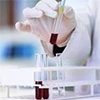 Biochemistry
Biochemistry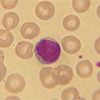 Haematology and Transfusion
Haematology and Transfusion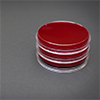 Clinical Microbiology (Including Virology)
Clinical Microbiology (Including Virology)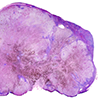 Cellular Pathology
Cellular Pathology General Information
General Information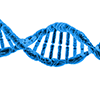 Molecular Pathology
Molecular Pathology